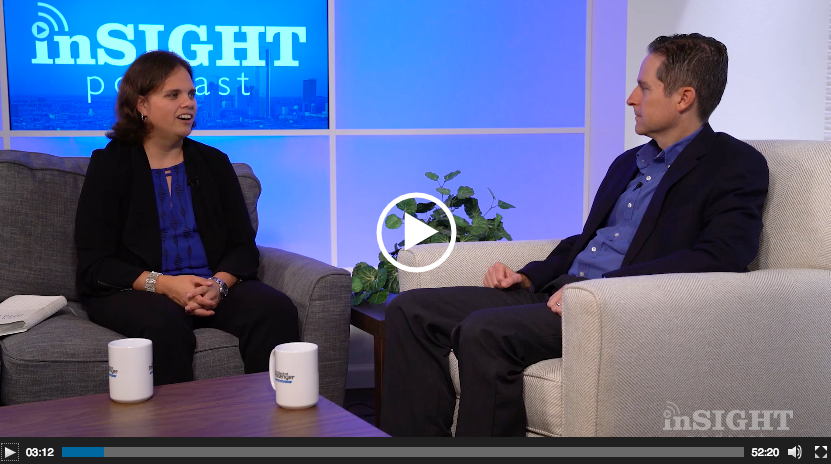Blogs
Something to Hate
“While hate is a strong word, it is a necessary word. It is necessary to speak the truth about what is evil. We need to use it to think about, talk about, and act against sin. In doing so, it will help us see sin for what it is: an affront against a holy, perfect, and righteous God. Hating sin helps us take it seriously. It helps us put it in its proper place. When we hate sin, it moves us fight against it, to be alert for its work in our lives, and to put it to death. The opposite of hate is love and if we don’t hate sin and treat it as evil, we will grow to love it.”
The Research Proves The No. 1 Social Justice Imperative Is Marriage
“A consistent and irrefutable mountain of research has shown, reaching back to the 1970s and beyond, that marriage strongly boosts every important measure of well-being for children, women, and men. Pick any measure you can imagine: overall physical and mental health, income, savings, employment, educational success, general life contentment and happiness, sexual satisfaction, even recovery from serious disease, healthy diet and exercise. Married people rate markedly and consistently better in each of these, and so many more, compared to their single, divorced, and cohabiting peers. Thus, marriage is an essential active ingredient in improving one’s overall life prospects, regardless of class, race, or educational status.”
Let Me Show You What Postpartum Depression Really Feels Like
“Being a mom not suffering from postpartum depression (PPD) has been an illuminating experience. After suffering from it with my first two children, I am sure I technically have PPD with my third child, but I am on medication that controls my symptoms so well that I function as a healthy neurotypical person.”
Elijah’s Tree Ministry for Discouraged Ministers
“Elijah’s Tree exists to provide God-centered, Christ-magnifying, Scripture-saturated, confidential, and accessible shepherding and spiritual refreshment for discouraged, burned out, wounded and hurting pastors, pastoral couples, chaplains, and missionaries.”
Emotional Intelligence, a Critical Trait of a Church Replanter
The four characteristics of emotional intelligence that we cover in this episode are:
- Self-awareness: The ability to know yourself and your emotions, not as you wish they were, but as they really are.
- Self-regulation: The wisdom and ability to understand the impact you have when you take action or refrain from action.
- Social awareness: The ability to read other people and understand their emotions.
- Relationship management: The ability to incorporate the other 3 skills to navigate and build positive relationships with all types of people.
Columns from Tabletalk Magazine, November 2017
“The November issue of Tabletalk considers the biblical teaching on leadership. Our nature as human beings is to seek out leaders to set a course for us and direct us in accomplishing things, and as Christians we are designed to seek leaders who will motivate us to do excellently for the sake of the kingdom of God. Yet in the workplace, the church, and the home, good leaders are often scarce. Further, we see leaders fail, and we often resist following our appointed leaders. These problems indicate that while we know we need leaders and that many of us should become leaders, we have a deficient understanding of what godly leadership actually is. This issue examines the biblical concept of leadership so as to help equip believers to be better leaders and followers in the various spheres of life.”
Whatever Is Lovely: How to Overcome Demanding Thoughts
“When we are struggling with distracting, demanding thoughts and emotions, God wants us to know that we are not victims who must simply endure the miserable ride on the train of our thoughts. He wants us to seize the controls he’s given us, switch tracks, and head in a faithful, joyful direction.”
Conversations through 95 Theses – Reflections on a Facebook Live Q&A
I’ve rarely seen such a sustained, charitable, and reasonable critique.
Kindle Books


Pursuing Peace: A Christian Guide to Handling Our Conflicts by Robert D. Jones $3.99.


Strong and Weak: Embracing a Life of Love, Risk and True Flourishing by Andy Crouch $2.99.


The Life of God in the Soul of the Church: The Root and Fruit of Spiritual Fellowship by Thabiti Anyabwile $2.99.











 As a family doctor, I had treated many people in similar situations, and if I had heard my story in the consulting room, I would have objectively diagnosed: “Mentally broken and severely depressed.” However, the subjective side of me—much more persuasive and persistent—convinced me that my problem was spiritual, a lack of spiritual will or trust. If only I could have greater faith in God, then everything would be okay. After all, “I can do all things through Christ who strengthens me” (Phil 4:13). But I was in the eye of the storm, weakened and disorientated, which is not the best place to make accurate assessments.
As a family doctor, I had treated many people in similar situations, and if I had heard my story in the consulting room, I would have objectively diagnosed: “Mentally broken and severely depressed.” However, the subjective side of me—much more persuasive and persistent—convinced me that my problem was spiritual, a lack of spiritual will or trust. If only I could have greater faith in God, then everything would be okay. After all, “I can do all things through Christ who strengthens me” (Phil 4:13). But I was in the eye of the storm, weakened and disorientated, which is not the best place to make accurate assessments.